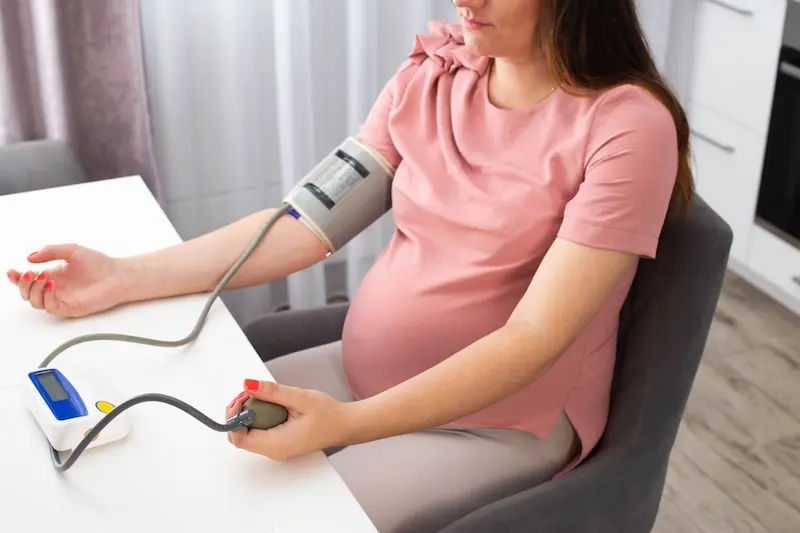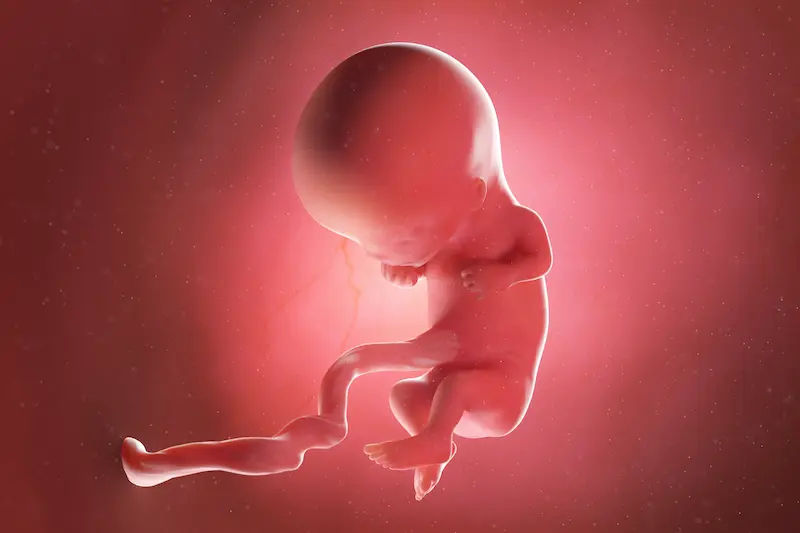Reddish Urine During Pregnancy, Causes & When to Worry
Reddish urine during pregnancy can be alarming, but it isn’t always dangerous. Learn common harmless causes like diet and vitamins, medical reasons such as UTIs or kidney stones, and when to seek urgent care to protect you and your baby.

Written by Dr. Rohinipriyanka Pondugula
Reviewed by Dr. J T Hema Pratima MBBS, Fellowship in Diabetes Mellitus
Last updated on 13th Jan, 2026

Introduction
Pregnancy is a journey of constant change, and that includes paying closer attention to your body's signals. While some changes are expected, seeing a reddish or pink tint in your urine can be instantly alarming. Your mind might jump to the worst-case scenario, but it's crucial to take a deep breath. Reddish urine during pregnancy can stem from a wide range of causes, many of which are completely harmless and easily explained. This comprehensive guide will walk you through all the possible reasons, from the simple to the serious, help you understand what to look for, and most importantly, guide you on when to contact your healthcare provider. Knowledge is power, and being informed will help you navigate this concern with confidence.
Common and Benign Causes of Red or Pink Urine
Before you panic, consider the most likely and innocent explanations. Very often, what you eat and drink directly influences the color of your urine.
Dietary Culprits, You Are What You Eat (and Drink)
The most frequent cause of harmless reddish or pink urine is consumption of deeply pigmented foods. Your body doesn't always break down all the pigments, and they are excreted through your kidneys. Common offenders include:
Beets: This is the classic culprit. Betanin, the pigment in beets, causes beeturia (red or pink urine) in a significant portion of the population.
Blackberries and Raspberries: Their rich, dark colors can also leach into urine.
Rhubarb: Eating a large amount can tint urine dark yellow or even reddish-brown.
Foods with Red Dye: Heavily processed foods, drinks, or candy containing red food coloring (like Red 40) are a very common cause.
If your reddish urine appears after a meal featuring these foods, it's likely the source and is no cause for concern.
Prenatal Vitamins and Medications
Your essential prenatal vitamins can also alter urine color. High doses of B vitamins, particularly B12 (Riboflavin), are known to cause neon yellow or even orange-tinged urine. Certain medications, such as Phenazopyridine (a drug for urinary pain), can turn urine a startling bright orange-red. Always check the side effects of any new medication.
Medical Causes, When Red Urine Signals a Problem
When diet or vitamins aren't the cause, reddish urine may be a sign of hematuria—the medical term for blood in the urine. During pregnancy, this warrants a doctor's investigation.
Urinary Tract Infections (UTIs)
UTIs are exceedingly common in pregnancy due to hormonal changes and the physical pressure of the growing uterus on the bladder. This pressure can trap bacteria, leading to an infection. Blood in urine during pregnancy is a key symptom of a UTI, often accompanied by:
A burning sensation during urination
A strong, persistent urge to urinate
Passing frequent, small amounts of urine
Pelvic pressure or pain
UTIs require prompt treatment with pregnancy-safe antibiotics to prevent the infection from spreading to the kidneys.
Kidney Stones
The pain of a kidney stone is often described as one of the most severe pains imaginable. Stones are hard deposits of minerals and salts that form in the kidneys. As they pass through the urinary tract, they can scrape the lining, causing bleeding and excruciating pain in the back, side, lower abdomen, or groin. This can lead to pink or red urine. Pregnancy can increase the risk of stone formation due to changes in calcium metabolism and urinary stasis.
Consult a Gynaecologist for Personalised Advice
Hematuria (Blood in the Urine)
Sometimes, blood is present in the urine without an obvious infection or stone. This is known as hematuria. It can be:
Gross Hematuria: Blood is visible to the naked eye, making urine look pink, red, or cola-colored.
Microscopic Hematuria: Blood is only detectable under a microscope during a urinalysis.
Causes can range from trauma and strenuous exercise to more serious conditions like kidney disease (e.g., glomerulonephritis) or, in very rare cases, tumors. A thorough medical evaluation is essential to determine the cause.
Is It Urine or Something Else? Spotting vs. Hematuria
A critical distinction to make is whether the red color is actually in your urine or if it's vaginal spotting or bleeding that is simply appearing in the toilet bowl. Here’s how to tell the difference between spotting and hematuria:
Timing: Wipe with white toilet paper after urinating. If the blood is only on the paper and not visibly mixing with the urine in the bowl, it's likely vaginal spotting.
Color: Urine with blood is typically a uniform pink, red, or brownish color. Spotting may be more streaky or appear as distinct drops.
Source: Hematuria originates from the urethra (where urine comes out), while spotting originates from the vagina.
Any bleeding during pregnancy should be reported to your doctor immediately to rule out complications related to the pregnancy itself.
Diagnosing the Cause; What to Expect at the Doctor's Office
If you see reddish urine and can't attribute it to your diet, your doctor will start with a urinalysis. This simple test checks for the presence of red blood cells, white blood cells (indicating infection), bacteria, and other markers. Based on the results, further tests may include:
Urine Culture: To identify the specific type of bacteria causing a UTI.
Blood Tests: To check kidney function and for signs of infection.
Ultrasound: A safe imaging technique during pregnancy used to look for kidney stones or structural abnormalities in the urinary tract.
Treatment Options Based on the Underlying Cause
Treatment is entirely dependent on the diagnosis:
UTIs: Treated with a course of antibiotics that are safe for you and your baby.
Kidney Stones: Management often focuses on pain control and hydration to help pass the stone. Sometimes, a urologist needs to intervene with minimally procedures.
Benign Causes: No treatment is needed if the cause is dietary. You may choose to avoid that food, but it is not harmful.
Prevention Tips for Common Causes
While you can't prevent every cause, you can reduce your risk of UTIs, a common trigger:
Stay well-hydrated to flush bacteria from your system.
Wipe from front to back after using the toilet.
Urinate soon after sexual intercourse.
Don't hold your urine for extended periods.
Wear cotton underwear and avoid overly tight clothing.
When to Seek Immediate Medical Attention (Red Flags)
Contact your healthcare provider immediately or go to the emergency room if reddish urine is accompanied by any of the following:
Fever and chills
Severe pain in your back, side, or abdomen
Nausea and vomiting
A burning sensation when you urinate
Reduced fetal movement
Any amount of vaginal bleeding
Conclusion
Noticing a change like reddish urine during pregnancy can be unsettling, but you are now equipped with the knowledge to understand the possibilities. While the cause is often benign, it is a symptom that should never be completely ignored. Your body is working hard to grow your baby, and it's sending you signals for a reason. You know your body best. If something feels off, or if the color change is persistent and unexplained by diet, the safest and smartest course of action is to call your doctor or midwife. They can perform simple, quick tests to provide a definitive answer and peace of mind. Trust your instincts, advocate for your health, and never hesitate to seek professional guidance throughout your pregnancy journey.
Frequently Asked Questions (FAQs)
Q1. Can dehydration cause reddish urine during pregnancy?
Yes, severe dehydration can concentrate your urine, making it a very dark amber or brownish color that might be mistaken for red. However, true red or pink hues are more likely from other causes. Staying hydrated is always important.
Q2. I see a pink tinge only sometimes, not every time I go. Should I be concerned?
Intermittent color changes can still be significant. It could be related to something you ate that day. However, it could also indicate microscopic hematuria that comes and goes. It's best to mention it to your doctor at your next appointment.
Q3. Are some women more prone to UTIs and kidney stones in pregnancy?
Yes, women with a history of recurrent UTIs or who have had kidney stones before pregnancy are at a higher risk. Anatomical factors and certain medical conditions can also increase susceptibility.
Q4. Is it safe to treat a UTI during pregnancy with antibiotics?
Absolutely. Leaving a UTI untreated is far more dangerous for both you and your baby, as it can lead to a kidney infection and preterm labor. Doctors prescribe antibiotics that are extensively studied and proven safe for use in pregnancy.
Q5. Could reddish urine be a sign of a problem with my baby?
The reddish urine itself is not directly a sign of a problem with the baby. However, if the cause is a severe infection like pyelonephritis (kidney infection), the associated fever and illness can pose a risk. Furthermore, if the blood is actually vaginal spotting, that could be related to the pregnancy and needs immediate evaluation.
Consult a Gynaecologist for Personalised Advice
Consult a Gynaecologist for Personalised Advice

Dr. Mona Yadav
Obstetrician and Gynaecologist
19 Years • MBBS, MD (Obstetrics & Gynaecology)
Dombivli
Nulife multispeciality, Dombivli

Dr. Parul Sharma
Obstetrician and Gynaecologist
8 Years • MBBS, MS (Obstetrics & Gynaecology)
New Delhi
THE DOCTORS NESST, New Delhi

Dr. Asha Rani Singh
Obstetrician and Gynaecologist
24 Years • MBBS DGO
Delhi
Dr Asha Rani Singh Clinic, Delhi
Dr. K Anusha
Obstetrician and Gynaecologist
4 Years • MBBS, DGO
Yemmiganur
SRINIVASAA HOSPITAL, Yemmiganur

Dr. Sheetal Aggarwal
Obstetrician and Gynaecologist
17 Years • MBBS, MS (Obstetrics & Gynaecology)
Gurugram
Dr Sheetal's clinic, Gurugram




